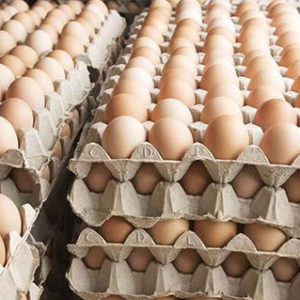When you think about it, it’s a pretty amazing that a hen in her laying prime produces an egg every 24 to 26 hours. That’s what I call working around the clock.
And then there is that “incredible, edible egg.” The Egg Board got that right with their advertising campaign back in the 1970’s — one that continues to work for them today.
If you raise backyard chickens, you know how fast the eggs can add up – even with just a couple of hens in the coop. Here at the 2nd Street Chicken Ranch, we usually have a dozen or more eggs in the fridge and occasionally sell the overflow at Farmer’s Market.
I’m frequently asked how long “fresh” eggs keep. I’m a little puzzled by this question and haven’t determine if it comes from a notion that fresh eggs last longer, or the opposite, spoil sooner, than commercially produced eggs. Fresh eggs are definitely fresher than any sitting in the grocery store, but the answer to “how long,” is about a month.
These are Keepers
According to the American Egg Board website (www.incredibleegg.org), eggs will keep without significant quality loss for about 4 to 5 weeks beyond the pack date or about 3 weeks after you bring them home from the store (this also tells me that commercial eggs take one to two weeks to go from packing plant to store). Of course the American Egg Board is referring to refrigerated eggs.
But did you know that eggs don’t require refrigeration? Now before you yank that egg carton out of the fridge to make room for that 2 liter box of wine, let me clarify: if eggs have been refrigerated, they need to remain refrigerated. If they have never been refrigerated, you can keep them out on the counter.
I know, that sounds radical — dangerous even. Yet many countries around the world don’t refrigerate eggs. It can be a bit of a cultural shock to walk into a Mexican market and see stacks of eggs sitting on the counter. But there’s no reason to shy away, since that incredible egg comes with its own incredible protective coating, called a bloom.
8,000 Holes
The eggshell contains as many as 8,000 microscopic pores and just prior to being laid, the bloom, a mucous coating, is deposited on the egg. This covering helps protect the contents of the egg from bacteria entering through the shell. It’s like an air-tight seal – sort of.
When eggs are commercially washed (because here in the US, we demand that our eggs be spotless), the bloom is removed. So to protect the egg (and us) from bacteria, commercially produced eggs are refrigerated. That isn’t the only reason of course, but it’s the primary reason.
We do refrigerate our eggs but we don’t do any heavy scrubbing unless the egg is really dirty (sometimes the girls like to roll them out of the nest box and around the coop like a football). Most of our eggs get a quick brush off with a soft towel.
So, if you see local fresh eggs with bits of dust or dirt on them, most likely that means the bloom is still doing its job. Just remember to ask if they have been stored in the fridge, before you consider leaving them out on the counter.
Have you visited a country where the eggs were not refrigerated? Tell me about your experiences in the comments below!





Very informative post thanks for the explanation. I am from the UK and always refrigerate my eggs as that’s what I thought you had to do but only noticed recently that our super markets don’t refrigerate them. I did wonder about it but didn’t really think more about it till now.
Hi Liz,
Glad you found this post helpful! As I said, we do put ours in the fridge, but it’s mostly for convenience (and storage!). Thanks for reading and following along.
Candace